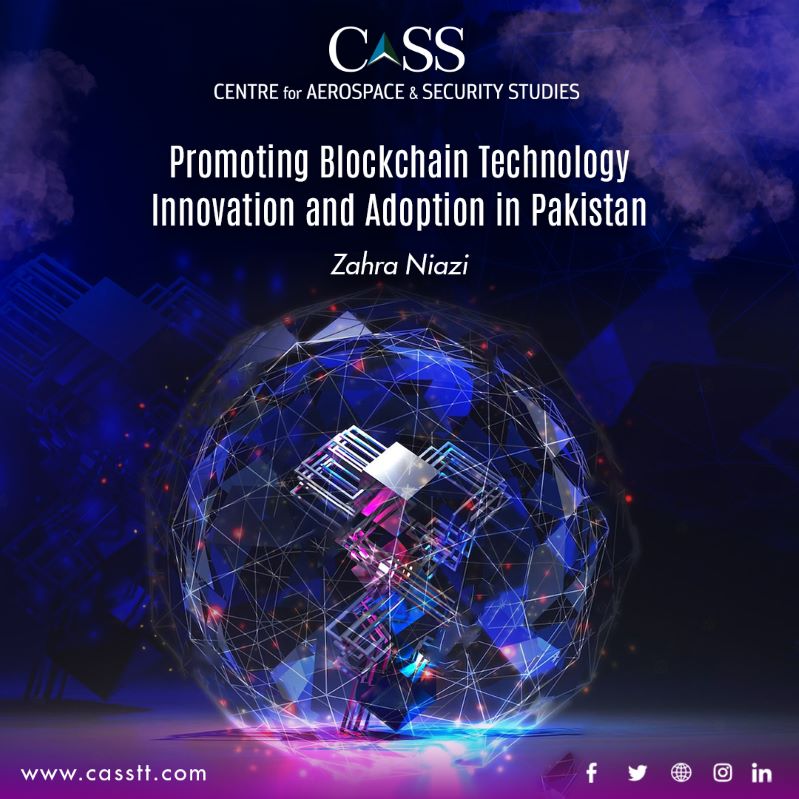Today, we are living in the midst of a global technological revolution, which is dramatically altering almost everything from how we live and work to how economic activities are organised, and wars are fought. Of the various technologies driving this revolution, blockchain technologies offer a wide range of opportunities. In simple terms, blockchain technology is a ‘distributed ledger that connects a decentralized network on which users can send transactions and build applications without the need for a central authority or a server.’
In recent times, blockchain has been widely heralded due to its numerous benefits, such as removing intermediaries, reducing costs, increasing transaction speeds, enhancing transparency, preventing manipulation of transactions, and increasing trust between parties. Currently, blockchain technology is being applied in a wide variety of sectors around the globe.In the financial sector, many banks, financial companies, and remittance service providers are utilising the technology for payments and currency or cross-border transfers. In e-commerce, businesses are employing blockchain to provide customers with multiple secure payment options. In real estate, its utility ranges from facilitating monetary transactions and paperwork to ownership transfer and exchanging confidential information. The healthcare sector is using it for preserving and exchanging patient records through laboratories, hospitals, and pharmaceutical firms.
Blockchain technology has also greatly benefitted supply chain management by increasing the efficiency of transactions and facilitating greater integration of financial and logistics services. States, like Sierra Leonean, have also been experimenting with the blockchain-based voting system to enhance political accountability and transparency of the electoral process. Additionally, blockchain has the potential to contribute to environmental sustainability by, for instance, facilitating the monitoring of groundwater usage. Moreover, it has facilitated the protection of the rights of digital asset owners. This is achieved through the possession of Non-Fungible Tokens that exist on the blockchain and are non-duplicable.These tokens represent real-world content such as music, arts, or clothing.
While these cases represent some of the frequently cited applications of the technology, the utility of blockchain goes far beyond them. Thus, the rapid growth of the global blockchain technology market is no surprise. According to Statista, the value of the worldwide blockchain market grew to USD 5.85 billion in 2021 from USD 1.57 billion in 2018, and this value is forecasted to grow to USD 163 billion by 2027.
In Pakistan, blockchain technology has also recently gained much traction. In January, the President of Pakistan Dr Arif Alvi advocated for developing a ‘National Blockchain Strategy’ and training the country’s human resource in multiple domains, including blockchain technology, cyber security, Big Data, and Artificial Intelligence (AI). These statements came following the President’s meeting with the delegation from the BSV blockchain association in Islamabad. The Ministry of IT and Telecommunication (MoITT) recently announced the decision to formulate Pakistan’s National Blockchain Policy, which will perhaps be a defining element in accelerating blockchain technology innovation and adoption in the country.
Realising the benefits offered by such emerging technologies, the President of Pakistan in December 2021, launched the ‘Presidential Initiative for Artificial Intelligence & Computing (PIAIC)’ to serve as an interdisciplinary hub for education and research in blockchain, AI, data science, and the like. PIAIC offers a one-year blockchain programme to prepare a talent pool in this emerging field. The Pakistan Blockchain Institute is another organisation that provides research, education, and consultation in blockchain technology.
Apart from this, some progress with regard to the development and deployment of blockchain technology is also underway in Pakistan. In the banking sector, the Telenor Microfinance Bank, in collaboration with Valyou Malaysia, has deployed blockchain-based remittance services. In 2019, Faysal Bank adopted blockchain technology for cross-border payments. Moreover, the Sindh Police has been utilizing a blockchain-powered Resource Management System to manage and distribute police warehouse inventory. Additionally, there are numerous blockchain technology start-ups in Pakistan, such as Tin Tash, Cubix, Softtik Technologies, Software Alliance, and Techmate Tech LLC, among others.
The current progress notwithstanding, some other major steps will have to be taken. First, there is no specific law for blockchain technology in Pakistan. It is important that legal recognition and protection is granted to the technology in parallel to the formulation of the policy. Second, there is a need to ensure that sufficient financial resources are available to blockchain technology start-ups and R&D institutions to help them with technology development and implementation of pilot projects. The private sector’s support can perhaps play a defining role in this context. Additionally, the adoption of new technologies can happen much faster if their benefits are understood. Therefore, it is imperative to disseminate awareness regarding the implications and potential of using blockchain in the private and public sectors to reap the game-changing potential of this emerging technology.
Zahra Niazi is a Researcher at the Centre for Aerospace & Security Studies (CASS), Islamabad, Pakistan. The article was first published in Modern Diplomacy. She can be reached at cass.thinkers@casstt.com.




